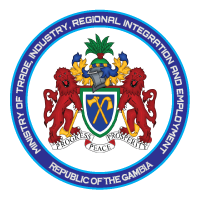The Honourable Minister of Trade, Industry, Regional Integration and Employment delivered a compelling statement on the commemoration of World Halal Standards Day 2025, which falls on the, 17th May each year, emphasizing the crucial intersection of innovation, technology, and sustainability in the rapidly evolving global halal industry.
Speaking on this year’s theme, “Innovating Halal: Embracing Food Tech and Sustainability with OIC/SMIIC Standards,” Hon. Baboucarr O. Joof underscored The Gambia’s active role in developing international halal standards through its decade-long membership in the Standards and Metrology Institute for Islamic Countries (SMIIC). As the halal market continues to expand beyond traditional sectors, the Minister highlighted how standardization has become essential for ensuring products maintain both religious integrity and meet modern quality assurance requirements, serving millions of Muslims worldwide who view halal as not merely a certification but a comprehensive way of life.
“It is noteworthy that this year marks the second year of this event worldwide and has been spearheaded and coordinated by the Standards and Metrology Institute for Islamic Countries (SMIIC which is an Affiliate structure of the Organization for Islamic Cooperation (OIC). Since its establishment in 2010, by aligning halal practices with established standards, SMIIC aims to create a reliable and transparent system that instils confidence among consumers and facilitates trade within the global halal market. The Gambia Standards Bureau has been an active contributor and player in the development and promotion of halal standards through its membership in SMIIC since 2012,” Minister Joof noted.
According to him, millions of Muslims around the world embrace halal more than just a label on a product but a way of life. OIC/SMIIC standards stands for purity, safety, ethical sourcing, and doing what’s right for people and the planet. And today, he added, these Halal standards are reminding us that halal is not just about what we eat but also how that food is being prepared and served, from start to finish including the raw materials and ingredients used, noting that the standards also help in ensuring halal certification is based on true Islamic values and principles, while factoring modern science, food safety, and global supply chains.
At the national level, he said, The Gambia Standards Bureau will lead the halal value chain stakeholders in a collective effort to commemorate the day through a series of activities geared towards promoting the Halal Standards and creating awareness. Hence, he called upon all stakeholders to renew their dedication to the adoption and implementation of halal standards as a way of life and doing business.

